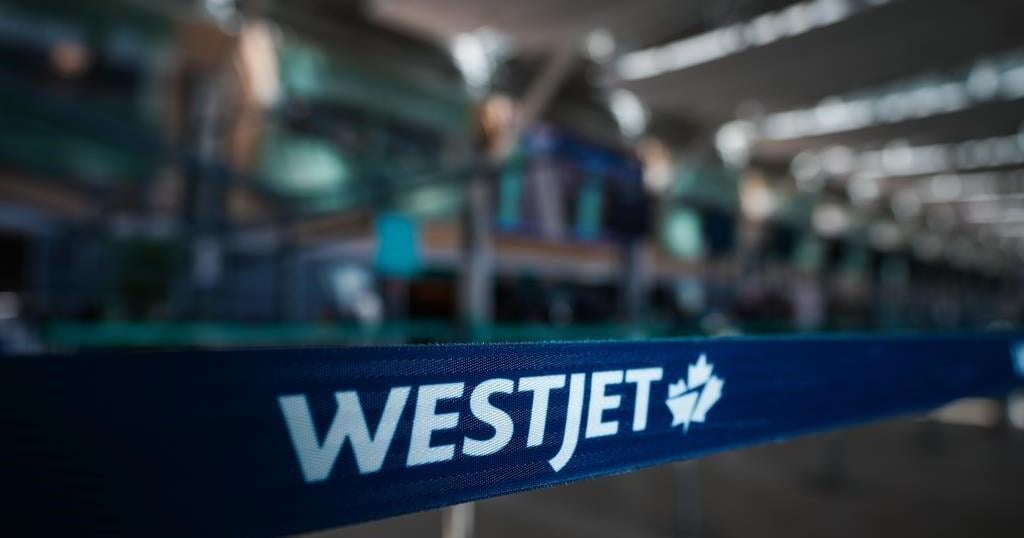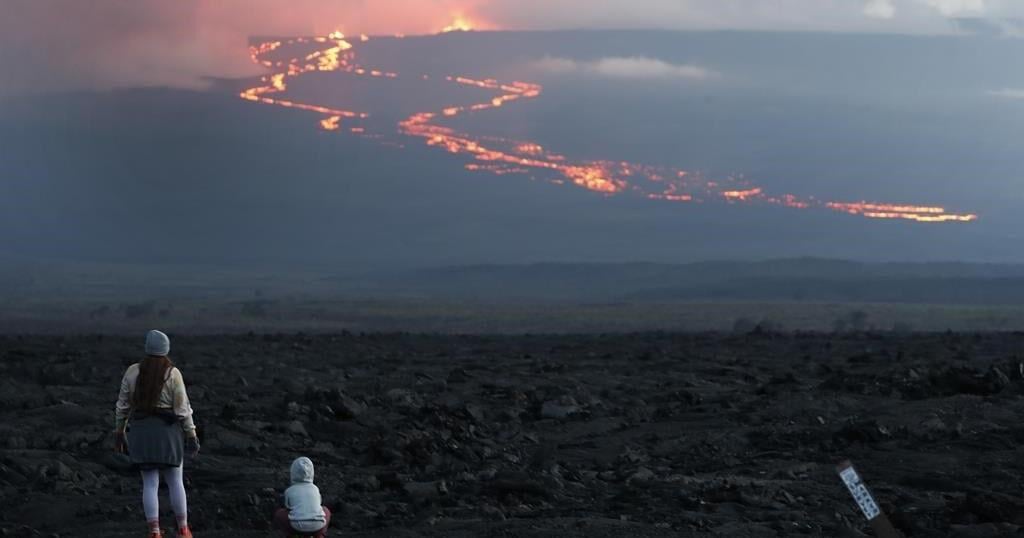Tens of thousands of Canadian airline passengers were left scrambling Saturday after a sudden strike by unionized airline mechanics at WestJet resulted in the cancellation of hundreds of flights by the country’s second largest carrier.
The Aircraft Mechanics Fraternal Association (AMFA) announced its members walked off the job around 5:30 p.m. MDT Friday because the airline’s “unwillingness to negotiate with the union made the strike inevitable.”
The move came after the federal government issued a ministerial order for binding arbitration on Thursday, following two weeks of turbulent discussions with the union on a new deal.
WestJet executives told a news conference in Calgary that 235 flights had already been cancelled as of mid-day Saturday affecting some 33,000 passengers, with the possibility of another 150 cancelled flights by the end of the day if there was no resolution to the walkout.
WestJet Airlines president Diederik Pen called the strike “devastating” for passengers and the airline.
“We are outraged and I want to assure you that we are doing everything we can to get this resolved,” said Pen.
The airline’s CEO, Alexis von Hoensbroech, put the blame for the situation squarely on what he said was a “rogue union from the U.S.” that was trying to make inroads in Canada.
Von Hoensbroech said as far as the airline was concerned bargaining with the union had come to an end once the minister directed the dispute to binding arbitration.
“This makes a strike totally absurd because the reason you actually do a strike is because you need to exercise pressure on the bargaining table,” he said. “If there is no bargaining table it makes no sense, there shouldn’t be a strike.”
He added the union had rejected a contract offer that would have made the airline’s mechanics the “best paid in the country.”
Meanwhile, federal Labour Minister Seamus O’Regan also appeared to be grappling with the strike and its fallout.
He issued a brief statement on Saturday morning saying he was reviewing the order by the Canada Industrial Relations Board and describing it as “clearly inconsistent” with the direction he provided.” But a new statement later in the day said he respects the authority of the board, which he noted is independent from the government. He intended to meet with the two sides later Saturday, he added.
In an update to its 680 members, the union posted a letter from the board regarding its decision in which it said that the ministerial referral “does not have the effect of suspending the right to strike or lockout.”
The threat of a strike seemed to recede On Thursday, but Friday’s surprise developments seemed to shock travellers and executives alike.
At Toronto Pearson International Airport, WestJet passengers Samin Sahan and Samee Jan said they had been planning to leave Saturday with extended family members on a trip to Calgary that had been planned for six to eight months.
Sahan said they had received emails earlier in the day telling them their flight had been rescheduled until Monday, but they went to the terminal anyway.
“We came to the airport to talk to some of the agents and try to find if there’s a schedule that can align all of our family’s plans,” Sahan said. “Everyone is getting scattered and we have grandparents and grandchildren travelling with us so it’s important that we all stick together while we are travelling.”
He said their efforts to seek clarification combined with the strike had left their travel plans up in the air.
“This inaction is hurting a lot of people, they’re own company as well as their customers who will likely no longer be their customers ever again,” Sahan said.
Jan called the situation “sad.”
“‘I’m not very surprised just because we’ve been hearing things about this strike, but … all this running around, it’s been a little sad.”
Sean McVeigh, a WestJet aircraft maintenance engineer picketing at Pearson’s Terminal 3 on Saturday, said the strike is an attempt to force the airline to return to a “respectful negotiation.”
McVeigh said the union regrets any inconvenience caused to passengers.
“However, the reason they (passengers) have possibly missed a flight or had to cancel is due to the reason that WestJet is not respectfully sitting down at the table and negotiating,” he said alongside roughly 20 others on the picket line. “We take on a lot of responsibility and we would just like to be appreciated financially,” he said.
Earlier this month, the mechanics voted overwhelmingly to reject a tentative deal with the Calgary-based airline, prompting WestJet to seek government intervention.
Gabor Lukacs, president of advocacy group Air Passenger Rights, said as things currently stand the union is participating in a legal strike.
“I believe that the blame here lies at the feet of management and not the union,” Lukacs said in a phone interview. “From a business management perspective they (WestJet) have not been handling the situation well and they need to face the music.”
He said WestJet has an obligation under the law to find stranded passengers alternate travel arrangements within 48 hours, either through another of its flights or with a competitor.
People can also ask for a refund, although Lukacs said he recommends against doing so.
“I would urge passengers not to take a refund unless they are absolutely sure they don’t want to travel,” he said. “If you take a refund then WestJet can wash its hands of its obligations to you.”
Pen said WestJet would follow regulations and refund passengers while offering overnight hotel stays to those who are stranded. Beyond that he said the airline was “unable to provide any additional compensation.”
This isn’t the first time labour unrest at WestJet has affected holiday weekend travel plans. The airline averted a strike last year in the early hours of the May long weekend, but before cancelling over 230 flights and forcing thousands of people to have their travel plans changed.
This report by The Canadian Press was first published June 29, 2024.
– with files from Christopher Reynolds in Montréal

























